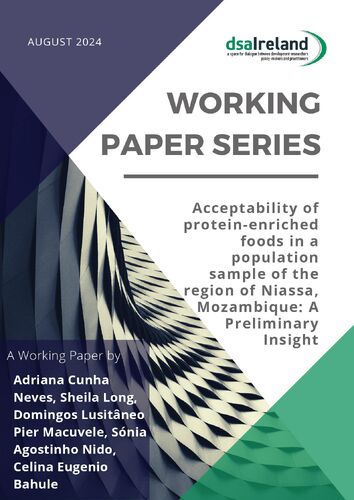By Adriana Cunha Neves, Sheila Long, Domingos Lusitâneo Pier Macuvele, Sónia Agostinho Nido, Celina Eugenio Bahule
Abstract
Mozambique's Niassa province heavily relies on agriculture, facing nutritional challenges due to limited investment. This study examines dietary patterns and willingness to adopt protein-enriched foods among a representative sample. Additionally, this study seeks to understand the receptiveness of individuals towards incorporating protein-enriched foods into their diets. A survey of 125 participants, using mailing lists and snowball sampling, found correlations between demographics and food preferences. Typically, participants have three to four meals daily, often purchasing from street markets. Their diet is maize flour-heavy, low in meat, fruits, dairy, and vegetables. However, there is awareness regarding protein-enriched foods, and willingness to try them. In conclusion, the study suggests that even though there is a promising potential for the successful introduction of protein-enriched foods within this sampled population, more work needs to be done to fully gauge the nutritional needs of the broader population as well as the successful implementation of protein-enriched foods. This work suggests that the inclusion of protein enriched foods have potential to generate impactful change in Niassa province, contributing for SDG2 – Zero hunger.
Keywords: Malnutrition; Mozambique; Niassa Province; Enriched foods; Food choices; Food security
